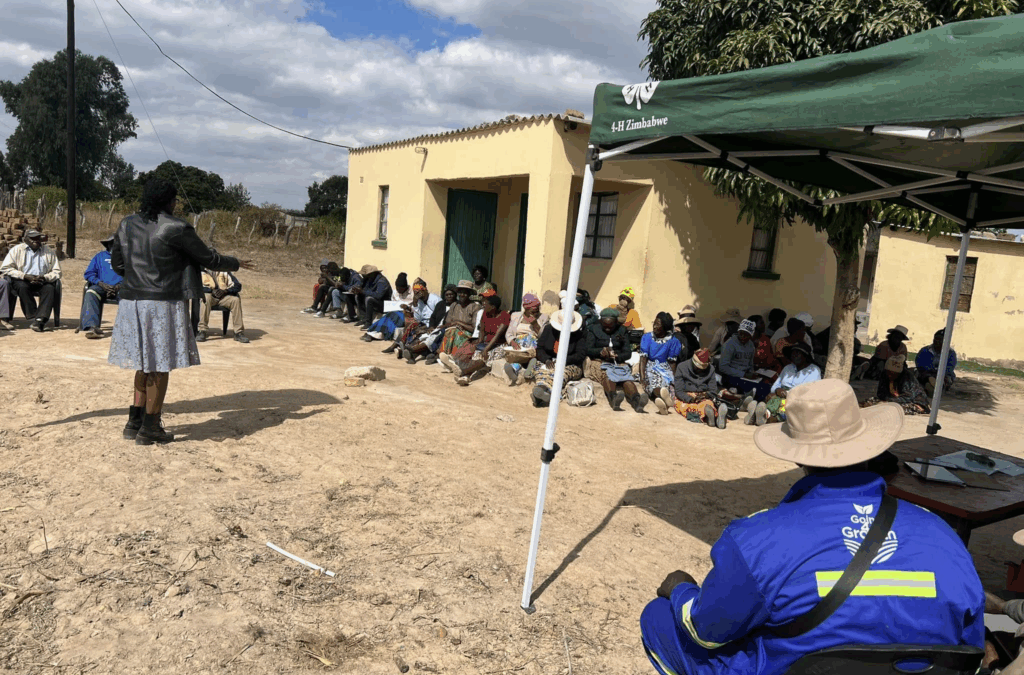On April 27, 4-H Zimbabwe conducted a post-harvest training for Ward 12, Chiwundura Rural District. The practical training was aimed at equipping farmers with the knowledge on how to properly handle and store their crops after harvesting. Moreover, to reduce post-harvesting losses, improve food quality and increase farmers’ profits.

The training was targeting community farmers from the Chiwundura, Ward 12 area. The session was led by a local Agritex officer, Martha Mujere, who was also representing the district agronomist. Also in attendance were the district agritex supervisor, 2 local agritex officers, 1 headman and 6 village heads.
During the training, Mujere explained the proper ways of drying and storing crops to reduce losses from mold and pests. She explained how drying is important in reducing moisture content to safe levels. She explained that sun-drying is a more common and effective way of drying crops. After harvesting, the crops are to be kept in a cool, well-ventilated place that is high up, to prevent moisture absorption. She suggested the use of airtight bags that prevent insects from accessing the crop. She explained that these processes are meant to maintain grain quality, ensure food availability even beyond the harvesting season, and improve market value.
4-H Zimbabwe Director, John Muchenje, outlined the importance of the training towards climate resilience and increasing communal adaptive capacity. He then went on to explain the background of the work done by 4-H Zimbabwe in the district. He gave an insight as to why this particular training was necessary, stating that land preparation was done, crop management was done, hence there was a need to do this post-harvesting training so that community members preserve the quality of their produce.
“It is always our pleasure to be educating communities about the best ways to adapt to climate change. Our greatest priority is to witness communities that are resilient and empowered,” he added.
4-H Zimbabwe has done land preparation, crop management and recently, post-harvest trainings to complete the full cycle of crop production up to its storage. Eight community solar-powered gardens have been established in the district to enhance the rural communities` livelihoods while building their resilience.

